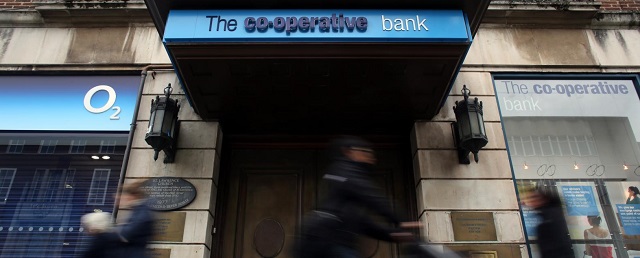“Everything needs to change, so everything can stay the same,” said that archetypical European character of Sicilian prince Fabrizio Corbera in the novel The Leopard. In his race to outpace the Eurosceptic threat posed by the UK Independence Party to Conservatives’ voter support, prime minister David Cameron may end up with a country effectively rejecting its European Union membership–much to the US’ chagrin. But some problems of the British economy will remain profoundly continental.
For instance, the banks. According to the regulator, the Prudential Regulation Authority, the UK’s financial system suffers a capital deficit of up to £25 billion, a gap that must be covered in 2013 to reach the minimum 7 percent core tier 1 capital ratio target. RBS, Lloyds and Barclays would have already begun the hunt of resources with asset sales (St James Place, Scottish Widows Investment, Citizens) and convertible bonds.
Indeed, risk agency Moody’s recent downgrade to junk status of Co-op Bank set a reminder of British banks’ troubles, analysts at Santander said Tuesday in a report. Co-op Bank has a 6.7 percent core capital level, 1 percentage point below the European average, and its late-payment rates have increased by 2.6 percentage points since last year to 10.7 percent in the main portfolio–it is 28 percent in the non-core portfolio. Moody’s also explained that profitability expectations look weak.
Co-op’s capital deficit is relatively small, of some £1 billion, but this limited size means nothing when “there are no recapitalisation alternatives,” Santander experts remarked. The bank has no access to the equity market, but although it has admitted solvency constrictions, it says it could use its insurance business and other assets to deal with them–a sale would bring in up to £800 million.
Whichever the solution is chosen, Co-op has adamantly refused the idea of needing a public cash injection. Even so, this is a story that will help little to improve banks’ image among the British people, not unlike what happens to its EU neighbours. Lloyds research proves the trend: over one quarter of students (28%) surveyed for a recruiting paper said they would be “too embarrassed to tell friends if they are going to work in a bank.” 41% of students responding to the survey distrust banks and financial services providers and 56% trust banks less than they did five years ago. One in every two students questioned (58%) thinks that an organisation’s reputation will influence their career decision.
“We need to take steps as a sector towards rebuilding our reputation through how we behave and what we do,” noted Lloyds CEO António Horta-Osorio, “the next generation should see banking as an industry that helps to build economic wealth and is playing its part as a useful member of our local communities.”






Be the first to comment on "UK banks in search of £25 billion to close capital deficit by 2014"